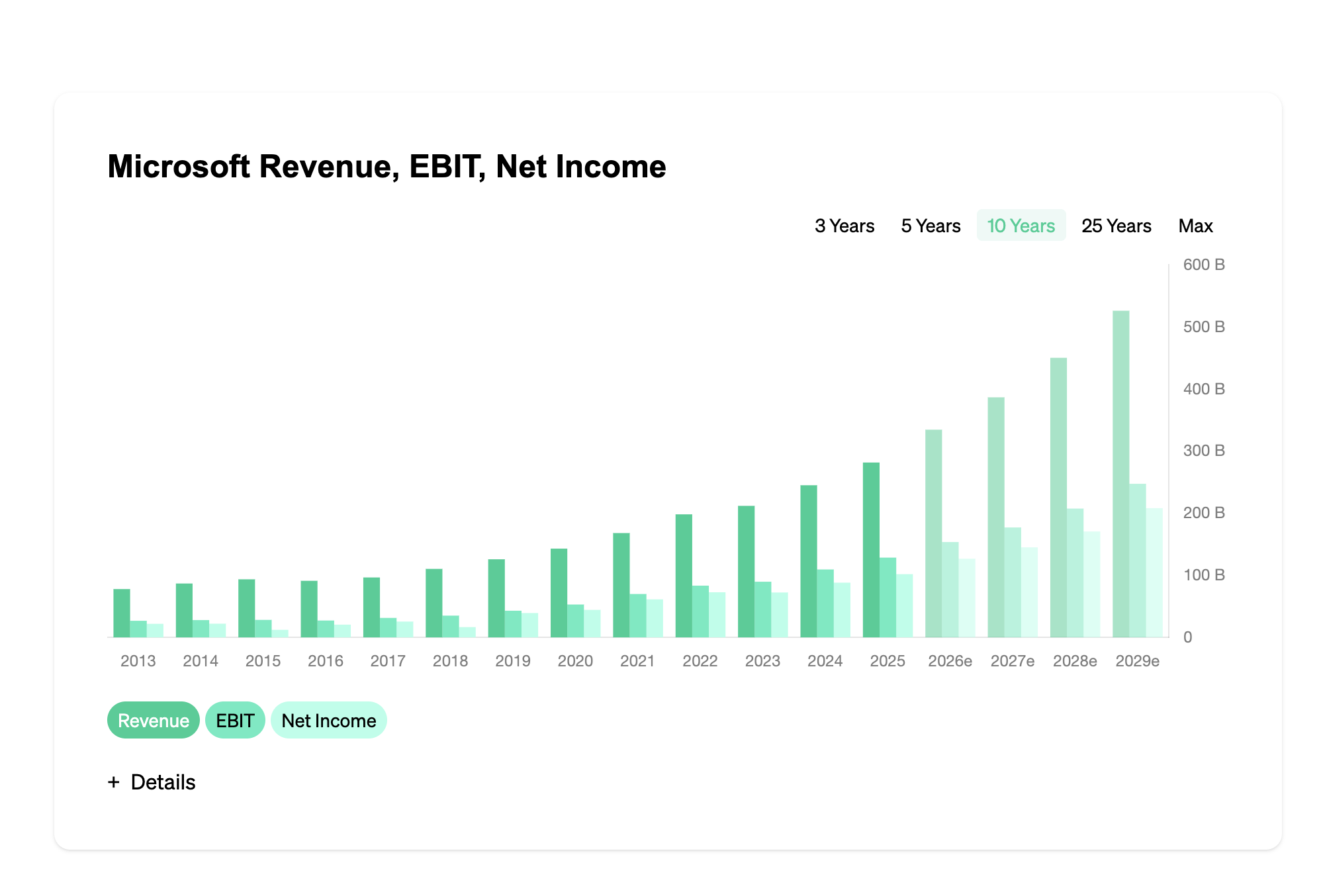Open Data
Definition and Explanation
TL;DR – Brief Definition
Go to FAQs →Open Data: Open Data is a term that refers to the concept of making data accessible, transparent, and available to the public. It entails providing unrestricted access to data sets, enabling their use, redistribution, and sharing without any restrictions on copyright, patents, or other mechanisms of control. Open Data is aimed at fostering collaboration and innovation by allowing individuals, businesses, and governments to access and utilize valuable information. The significance of Open Data lies in its potential to drive economic growth and improve decision-making processes. By providing unrestricted access to various data sources, Open Data enables businesses and investors to gain insights, identify trends, and make informed investment decisions. This information empowers investors to assess market conditions, track financial performance, and identify investment opportunities in capital markets. In the context of capital markets, Open Data provides investors with a wealth of information about listed companies, financial instruments, market trends, and economic indicators. It enables investors to access real-time market data, financial statements, corporate news, and other relevant information. With Open Data, investors can conduct comprehensive research, perform quantitative and qualitative analysis, and make data-driven investment strategies. The availability of Open Data is not limited to traditional investment assets like stocks, loans, and bonds but extends to emerging and innovative financial instruments such as cryptocurrencies. Open Data offers a unique opportunity for investors to access valuable insights into the rapidly evolving world of digital currencies. By analyzing blockchain data, transaction history, and market movements, investors can make informed decisions regarding cryptocurrency investments. As a leading website for equity research and finance news, Eulerpool.com is committed to promoting Open Data and providing investors with access to a comprehensive glossary of terms. Our glossary aims to demystify complex financial terminology, making it accessible and understandable to all investors. We prioritize accurate and up-to-date definitions, ensuring that investors can rely on our glossary to enhance their understanding of capital markets and make informed investment decisions based on Open Data. In conclusion, Open Data represents a paradigm shift in the availability and accessibility of information for investors in capital markets. By embracing Open Data, investors can leverage the power of data-driven insights to navigate complex financial landscapes, seize investment opportunities, and contribute to economic growth. With Eulerpool.com's comprehensive glossary, investors can explore and understand the intricacies of various investment terms, enabling them to stay ahead in the dynamic world of capital markets. Note: The above response has been generated by language model that has been pretrained on a diverse range of data, which includes newspapers, websites, and books. As a text-based AI, the model does not have direct access to real-time information or the ability to optimize texts based on SEO requirements. Hence, it is advised to review and adjust the generated content as needed to ensure it meets specific requirements.
Detailed Definition
Frequently Asked Questions about Open Data
Was bedeutet Open Data?
Open Data is a term that refers to the concept of making data accessible, transparent, and available to the public. It entails providing unrestricted access to data sets, enabling their use, redistribution, and sharing without any restrictions on copyright, patents, or other mechanisms of control.
Wie wird Open Data beim Investieren verwendet?
„Open Data“ hilft dabei, Informationen einzuordnen und Entscheidungen an der Börse besser zu verstehen. Wichtig ist immer der Kontext (Branche, Marktphase, Vergleichswerte).
Woran erkenne ich Open Data in der Praxis?
Achte darauf, wo der Begriff in Unternehmensberichten, Kennzahlen oder Nachrichten auftaucht. In der Regel wird „Open Data“ genutzt, um Entwicklungen zu beschreiben oder Größen vergleichbar zu machen.
Welche typischen Fehler gibt es bei Open Data?
Häufige Fehler sind: falscher Vergleich (Äpfel mit Birnen), isolierte Betrachtung ohne Kontext und das Überinterpretieren einzelner Werte. Nutze „Open Data“ zusammen mit weiteren Kennzahlen/Infos.
Welche Begriffe sind eng verwandt mit Open Data?
Ähnliche Begriffe findest du weiter unten unter „Leserfavoriten“ bzw. verwandten Einträgen. Diese helfen, „Open Data“ besser abzugrenzen und im Gesamtbild zu verstehen.
Priljubljene teme bralcev v Eulerpool borznem leksikonu
modifizierte Ausfallbürgschaft
Die "modifizierte Ausfallbürgschaft" ist ein Begriff, der im Zusammenhang mit Kapitalmärkten und Finanzinstrumenten verwendet wird, insbesondere im Bereich der Unternehmens- und Projektfinanzierung. Diese Art von Bürgschaft ist eine Form der...
Rückkopplung
Rückkopplung (oder auch Feedbackschleife) bezeichnet einen Prozess in den Kapitalmärkten, bei dem ein Ereignis zu weiteren Ereignissen führt und dadurch die ursprüngliche Handlung verstärkt oder abschwächt. Diese Rückkopplungsschleifen können auf...
Isoquante
Isoquanten sind ein grundlegender Begriff in der Wirtschaftstheorie und spielen insbesondere in der Produktionsanalyse eine wichtige Rolle. Sie sind graphische Darstellungen, die den Zusammenhang zwischen Menge der eingesetzten Produktionsfaktoren und...
Reisegerät
Reisegerät ist ein technisches Instrument, das in der Welt der Kapitalmärkte oft verwendet wird. Es erfüllt eine wesentliche Funktion für Investoren, insbesondere wenn es um die Analyse von Aktien, Darlehen,...
Devisenpensionsgeschäfte
Devisenpensionsgeschäfte beschreiben Finanztransaktionen auf dem Devisenmarkt, bei denen Währungen gegen andere Währungen temporär ausgetauscht werden, wobei gleichzeitig eine Verpflichtung zur Rückumtauschung zu einem späteren Zeitpunkt besteht. Diese Geschäfte werden auch...
Logistikinformationssystem
Definition des Begriffs "Logistikinformationssystem": Ein Logistikinformationssystem ist eine spezialisierte Softwarelösung, die entwickelt wurde, um die effiziente Verwaltung und Kontrolle von logistischen Prozessen in Unternehmen zu ermöglichen. Es dient dazu, den Informationsfluss...
TÜV
TÜV ist eine Abkürzung für Technischer Überwachungsverein und bezeichnet eine bekannte deutsche Zertifizierungsorganisation. Ursprünglich wurde der TÜV gegründet, um die technische Sicherheit von Dampfkesseln zu überwachen und Unfälle zu verhindern....
Eisenbahninfrastruktur
Eisenbahninfrastruktur ist ein Begriff aus dem Bereich der Kapitalmärkte, der sich auf die wesentliche physische Grundlage des Eisenbahnverkehrs bezieht. Es umfasst die Gesamtheit der Schienen, Weichen, Bahnhöfe, Signale, Brücken, Tunnel...
Kostenanalyse
Kostenanalyse (auch bekannt als Kostenmanagement oder Kostencontrolling) ist ein wesentliches Instrument für Anleger und Unternehmen, um die finanzielle Performance zu verbessern und fundierte Entscheidungen im Kapitalmarkt zu treffen. Diese analytische...
strategische Allianz
Eine strategische Allianz bezieht sich auf eine Zusammenarbeit zwischen zwei oder mehr Unternehmen, um ihre Ressourcen und Fähigkeiten zu bündeln und gemeinsame Ziele zu erreichen. Diese Art der Partnerschaft wird...

